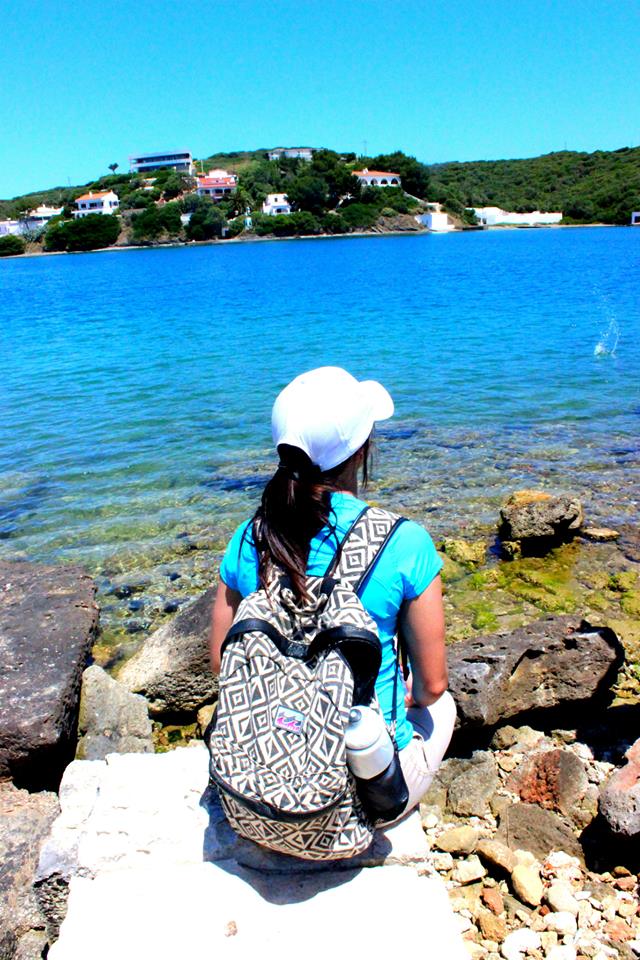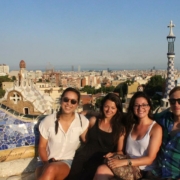Alana McMann, Menorca, Spain: Field School in Archaeology & Heritage Management
 Archaeological surveying, excavation, collection, and cataloging, Spring 2013
Archaeological surveying, excavation, collection, and cataloging, Spring 2013
Coursework and fieldwork: The coursework involved working on two archaeological sites: one dating back to the Iron Age and the other from the 18th century. Every day we surveyed, excavated, collected, and cataloged artifacts consisting of bones (including an ancient cow), pottery, glass, and even fossilized puddles. Throughout this process we studied geology, natural drainage paths, and the evolution of cultures at the two sites. It was fascinating to study two sites whose occupations differed by more than 2000 years.
I Learned: Like many of my classes in SMG, the courses I took in Menorca revolved heavily around teamwork. However, I learned that the leadership challenge differs greatly when the work involves physical labor, heat, and insects (teams tend to fall apart when there are spiders involved). Also, as a business student, I seldom have the opportunity to work with people in vastly different fields. I quickly learned that archaeologists have a different way of thinking than business students: I approached the work from the perspective of efficiency and effectiveness, while they saw the work as part of a holistic experience. Truly, it expanded my thinking in so many ways.
Hardest Part: I loved every minute of my time in Spain. The work was physically challenging but incredibly interesting and well worth the effort.
Best Part: Although I had classroom experience in archaeology, working in the field gave me a new appreciation for the subject. Archaeologists are passionate about what they do, and I am lucky to have experienced and shared in their infectious enthusiasm. While my Spanish still isn’t great, I fell in love with the Spanish culture (and food). Plus, I got to spend six weeks on a gorgeous island in the Mediterranean.




